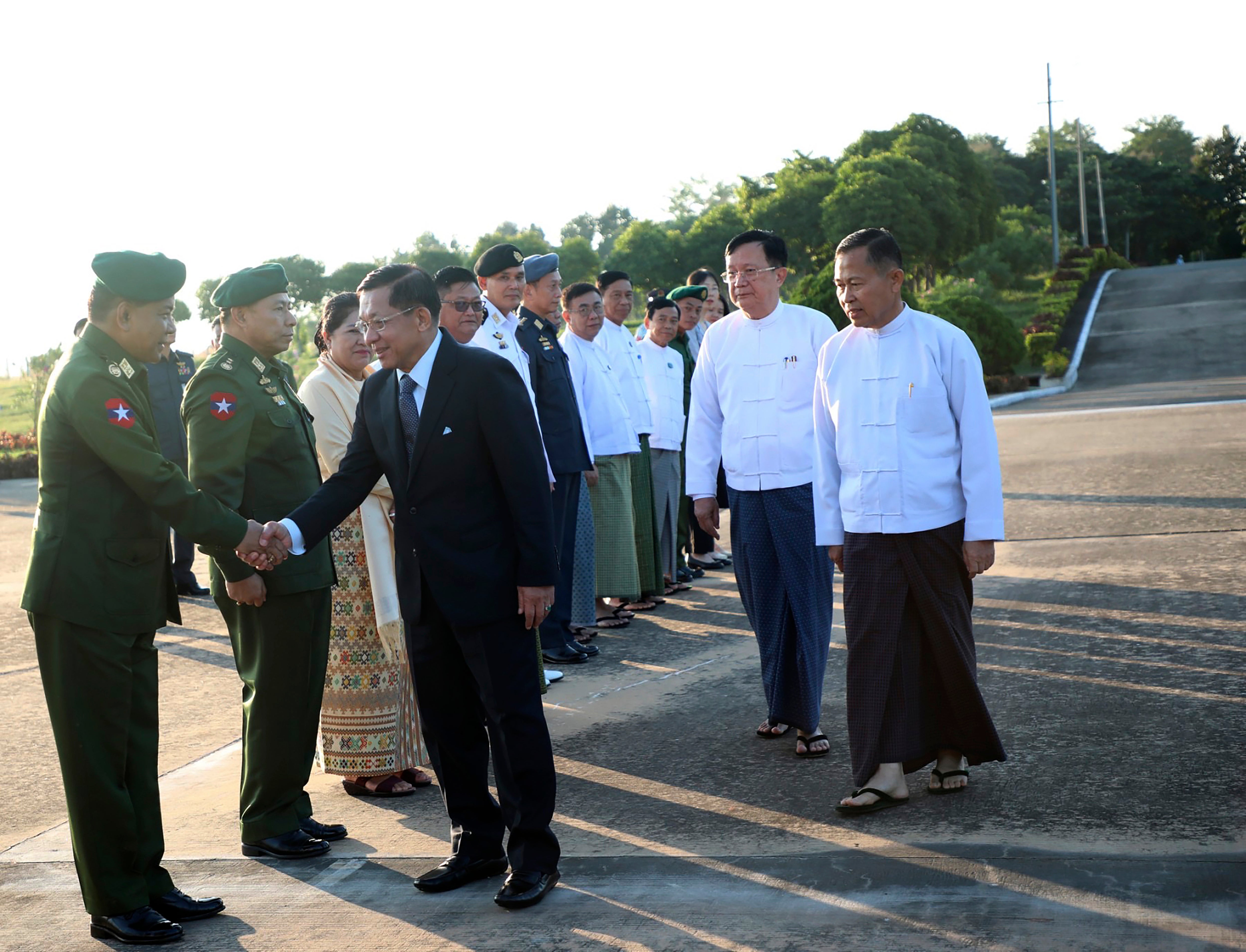Myanmar's junta chief Min Aung Hlaing embarked on his first official visit to China since wresting power three years ago as civil war continued to rage in his Southeast Asian country.
Beijing has been a major ally and arms supplier of the Myanmar military but last year China sealed parts of the border and halted key imports to rebel-controlled areas when the internal conflict reached its southern borders.
Beijing is known to also maintain ties with Myanmar's armed rebel groups which hold territory along its border.
Gen Hlaing departed on a flight from capital Naypyitaw on Tuesday for a two-day visit to the neighbouring country since his army orchestrated a coup and seized power from the elected government of Aung San Suu Kyi in February 2021.
He will visit the Chinese city of Kunming on Wednesday and Thursday to attend the Greater Mekong Subregion summit along with two others, state-run MRTV reported. Kunming, the capital of China's Yunnan province, is about 400km from the border with Myanmar.

He is reportedly scheduled to meet Chinese government officials to discuss "ways to enhance goodwill, economic and various sectors between the two governments and the people".
The visit comes at a time when the Myanmar Army is working to recover from the unprecedented battlefield defeats over the past year and mostly near the Chinese border. There has been a rise in anti-Chinese sentiment in Myanmar due to Beijing's strong ties with the junta, The Irrawaddy reported in October.
China has strategic economic interests in Myanmar, including major oil and gas pipelines crossing the country and a planned deep-sea port in the Bay of Bengal. Beijing, Myanmar's biggest trade partner, also imports rare earths from its smaller neighbour for use in the automotive and wind energy sectors.
“Whether he is going there to receive more Chinese support or more Chinese pressure, it's only bad for the people," said David Mathieson, an independent analyst who tracks Myanmar.
"China has made clear they are supporting the SAC and their elections transition plan," he said, referring to the junta's State Administration Council, headed by the army chief.
The offensive by the “Three Brotherhood Alliance”, comprising the Myanmar National Democratic Alliance Army, the Arakan Army and the Ta’ang National Liberation Army, was able to quickly capture towns and overrun military bases in the Shan state along the border last year.
It was widely seen at the time as having Beijing’s tacit support to help stamp out rampant organized crime activities in the area controlled by ethnic Chinese. Beijing helped broker a cease-fire in January, but that fell apart in June when the rebel forces launched new attacks.
Kyaw Zaw, a spokesperson for the shadow National Unity Government (NUG), said in a recorded video posted on Facebook, that he was deeply concerned about China's invitation to the army chief and urged Beijing to review its action.
"Myanmar's people want stability, peace and economic growth. It is Min Aung Hlaing and his group who are destroying these things," Kyaw Zaw said. "I am concerned that it will unintentionally incite a misunderstanding of the Chinese government among Myanmar's public."
The NUG was established by elected lawmakers barred from taking their seats in 2021 and is closely linked to Ms Suu Kyi's former ruling National League for Democracy party, which had friendly relations with Beijing.
Although China has faced backlash for backing the army, the shadow government has avoided antagonising Beijing too much, recognising the influence it has in the region.
The junta began a nationwide census last month to pave the way for an election next year, despite not having control over wide swathes of the country, and with dozens of political parties disbanded.
Beijing promised technical support and aid to the junta for the census and the proposed election, Myanmar state media said in August after Chinese foreign minister Wang Yi met the army chief.
Additional reporting by agencies.







